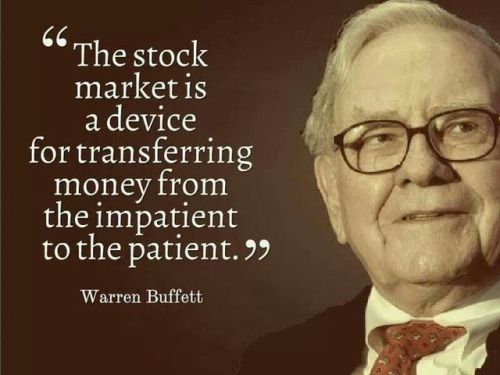#investing
and its gone
Yes, whether they are victim or not changes a lot about how to respond to it; if they are the target of a malicious scam we should use law enforcement resources etc to crack down on the scammer, while if they are just bad at investing we will sadly shake our heads. Similar to how we respond differently to murders and mountaineering accidents.
that’s not really about what we do about the person who lost their money, though. it’s about how we respond to the person who took it.
sure, if there’s a scammer sometimes you can recover some of the money lost and give it back, which is in some way about what happens to the person who lost their money, but there’s no guarantee of that either way
(re:this thread)
My disagreement is when you write
society … upon observing that bad things are happening, does have a moral obligation to try to minimise them
I would rather say that society should try to minimize bad things that are done to somebody, but if someone fucks up their own life, that’s their own decision to make and we don’t want society to interfere. Sometimes there’s a tradeoff when the utilitarian calculus so lopsided that it overrides the concerns for autonomy (things like involuntary psychiatric hospitalization, banning heroin, etc). But in general we don’t want society to make peoples’ decisions for them, even if it’s making “better” decisions in some sense.
A while back I linked Matt Levine’s fantasy investing regulations:
Anyone can invest all they want in a diversified portfolio of approved investments (non-penny-stock public companies, mutual funds and exchange-traded funds with modest fees, insured bank accounts, etc.).
Anyone can also invest in any other dumb investment; you just have to go to the local office of the SEC and get a Certificate of Dumb Investment. (Anyone who sells dumb non-approved investments without requiring this certificate from buyers goes to prison.)
To get that certificate, you sign a form. The form is one page with a lot of white space. It says in very large letters: “I want to buy a dumb investment. I understand that the person selling it will almost certainly steal all my money, and that I would almost certainly be better off just buying index funds, but I want to do this dumb thing anyway. I agree that I will never, under any circumstances, complain to anyone when this investment inevitably goes wrong. I understand that violating this agreement is a felony.”
Then you take the form to an SEC employee, who slaps you hard across the face and says “really???” And if you reply “yes really” then she gives you the certificate.
Then you bring the certificate to the seller and you can buy whatever dumb thing he is selling.
If an article ever appears in the Wall Street Journal in which you (or your lawyer) are quoted saying that you were just a simple dentist, didn’t understand what you were buying and were swindled by the seller’s flashy sales pitch, then you go to prison .
Invest.
Invest into yourself.
Invest into your mental health.
Invest into your time.
Invest into your goals.
Invest into your future.
Another awesome student interview here!
This time we take the perspective of an exchange student from the States. Very interesting because although what he says may not relate to all, we can all learn from what he says and advises.
Enjoy!
1. Name and university
Dillan, from the US, studying at Edinburgh University
2. Did you take out a student loan? If so, how much are you getting?
As an international student, Dillan obviously has to pay way more for university. He’s studying a one year masters in Edinburgh, which will cost him $35,000.
To us Brits, that’s a huge amount of money – but in the US university costs double that, so he’s probably saving money by coming all the way to our little island. In the recording it’s not very clear if he took out a loan to come here, but we can assume so.
3. Is the loan enough? How else do you support yourself?
He tells us he worked for 6 years before coming to the UK, and was able to save up quite a lot. Go Dillan.
4. Do you budget? How?
Dillan is even more of a budget nerd than I am! He budgets all his expenses into an Excel spreadsheet every 2 weeks. That way he’s in good control of everything that comes in and out and how to plan for the future. Alvar and I were impressed.
Related:How to Set a Budget in Less than 10 Minutes
5. What are your tips to save money?
Dillan has another interesting mentality when it comes to this: focus more on your income than your expenses.
He argues that you can only decrease your expenses till a certain point, whereas you can alwaysincrease your income.
For this reason, his advice is to work on getting a good job. Build up your resume, work on your skills and get the best job you can find.
I love that he said this because it’s quite different to what Tom said last week: ‘Think ‘Do I really need this?’ before buying.
Both are very important pieces of advice – which you get to read and apply to your life.
6. Do you have a job? What is it?
He did work for 6 years back in the US as a project manager, so he says now he’s got his savings and doesn’t need to worry about getting a job.
Related:Top 5 Skill-Building Jobs for University Students
7. Do you make money in any other ways?
Investments! I was ecstatic to hear about a student who was into investing!
He says he doesn’t have any short-term investments, only long term in something called an IRA (the American version of the ISA here in the UK). Since he worked for two different companies, he has investments with their pension schemes.
Still pretty cool that he’s already thinking about his future and investing.
8. How do you find student deals and which ones do you use?
Since he is a hardcore budgeter, he doesn’t feel the need to search for student deals and discounts. As mentioned before, he focuses on increasing his income, and not so much decreasing his expenses– simply an interesting and different mentality to have.
Although cool, I still recommend checking out this system I made to take advantage of as many discounts as possible (it does not require coupon clipping).
9. Ever thought of getting started with investing? What’s holding you back?
Of course, here we knew Dillan had experience with investing, and both Alvar and I were excited to hear someone else who was into it.
But Dillan gave a very important piece of advice: don’t start investing until you have no debt.
When investing, you will be getting an average of 7% a year, however if you have debt with an interest rate of 18% APR, it literally makes no sense to start investing before paying off debt.
In the US, student loans are very different to the UK. Americans get higher interest rates and are obliged to pay them all back.
In the UK, you don’t need to pay them back in full and the interest rate is 0.5 or 1%. Yay.
So following Dillan’s advice, pay off your debt if it’s something like consumer debt (credit cards, payday loans, personal loans, etc), and then start investing. Hopefully you haven’t even heard of the word consumer debt before.
Related:
10. What are some things you’re struggling with at uni?
As an international student, the hardest part for him was uncertainty. He wasn’t sure how high the expenses would be in Edinburgh and didn’t know how to budget or forecast before actually getting there.
An interesting problem to have. If I were him I would have gone to an Edinburgh subreddit or UK students and asked others – crowdsourcing is always a great answer!
11. Is university worth it, for you?
Following on from his philosophy, Dillan is doing this masters so he can get a much better job with a higher salary. For him, a big part of university is that big career advance that will let him earn more money.
Impressive, and I think we can learn a lot from a mentality like this.
Takeaways
Dillan was very interesting to interview and I’m glad we got the perspective of an American student! Here are the main takeaways I got from our interview:
- Focus more on your income than your expenses
- Pay off your debt before you start investing
- Do your research before moving to a new place!
Do you agree with what Dillan says? Reblog and let me know!
(via6 Investing Myths DEBUNKED)
Most students look at me like I’m crazy every time I suggest getting into investing - that’s because they believe all the myths people tell them (hem hem broken education system).
Investing is not complicated.Youdon’tneed a lot of money to get started with. And you won’t lose all your money.
Check this post out to understand why!
Post link
Student discounts are your friends.
Thanks to them you sometimes get to eat free, get some nice cheap clothes and from time to time some free money. Exactly what students need.
And yet most students aren’t aware of those discounts! Some actually pay the full price of clothing or actually pay the Spotify membership in full! Crazy!
If you want to save some proper money, I recommend following the steps in this post to find the best student discounts. We start off with the right cards to get and finish with the best websites to keep up to date – the amount you’ll save will blow your mind.
1. Cards
Get these cards and use them. You’ll be surprised at how many places will offer you discounts if you parade your NUS or uni card in front of them. These cards can be used for clothes, food, bars, transport, etc. To make sure you’re never missing out on a discount, you can show these cards to anyone and ask. I tell you: worth it.
The National Union of Students offer the latest NUS Extra card that will give you some sweet discounts in many of the major high street shops. It costs £12 for one year, and apparently you save an average of £500 a year using it!! Very cool.
University student card
Yep, your own university will help you out. Thanks to that little card, I’ve had a ton of discounts in bars, restaurants and random places like zoos. Whip it out, show it and you get a discount.
This one is an app and you can also get the card. All you have to do is show your profile on the app while checking out in a retail shop and you can receive 10-50% discount! There’s no shame in asking around – we’re all trying to survive her. This applies for both restaurants and retailers.
As the name says itself, great for anyone aged 16-25 who takes the train a lot. Thanks to this little card you can get 1/3 off any train fares. You do have to pay £30 a year though.
The benefits a student debit card has are pretty amazing. First you need to go open a student bank account at the bank that offers the best benefits (you can compare here). Some offer some cool benefits such as a free £80 gift card, 1 year of Amazon Prime and some great overdrafts. You get those the minute you sign up and will get more if you graduate with the same bank.
2. Specific discounts
So you’ve now got your cards. Now it’s time to look into stuff a bit more specifically to gather even more discounts. They may take a bit more time to use or research, but most are totally worth it.
For most of them you’ll need a NUS card or UNiDAYS. Which is why I’m making sure you’ve got those before getting more.
Clothing
All items here range from 10-20% off.
Food
Always great to get cheaper food! Discounts here range from 10% to 40% off!
- ASK Italian – 40%!!
- Dominos Pizza
- Giraffe
- Gourmet Burger Kitchen
- Krispy Kreme – 20%
- McDonalds
- The Cooperative
- Yo! Sushi
Entertainment
Amazing discounts here for cinema and music lovers.
- Spotify Premium – 50% off!
- The Guardian – 80% off!
- Odeon Cinemas
- Cineworld
Stuff
Whether it’s school stuff or just stuff you need, Amazon and others have pretty amazing discounts.
- Amazon.co.uk – An amazing 6 months free and then half-price. If you want an entire year free open a student bank account with HSBC
- Waterstones – 10%
- Paperchase – 10%
Technology
For all those hours you spend on a laptop. Here are some top quality deals:
- Adobe Creative Cloud – 60%
- Apple for education – 10%
- HP – 30%
- Microsoft Office – 10%, plus 4 year Microsoft Office subscription for £59.99.
- Norton Security – £46 off
- Software4Students – Tons of more student deals.
3. Websites
Now you’re a proper discount pro. You’ve got the cards, you know which specific discounts you want to use and you’re saving a lot of money. The next step is to keep up to date. Student deals and offers are constantly changing and adjusting to seasons, so it’s good to keep up to date and see what else is happening. To do this I recommend signing up to newsletters (actually checking those emails!) and regularly checking the websites. You can also download the app if they offer it (like UNiDAYS).
Here are some top websites for student deals:
- Save the student
- Student Beans
- NUS website
- UNiDAYS
- Student Money Saver
- STA Travel
- Student Universe (cheap student flights!)
4. How others do it
I’m always asking how other students survive and take advantage of discounts. You can check this awesome previous case study with Victoria where she explains exactly how she budgets and does all the rest.
What she says: walk around. As you’re walking to uni, or going to the gym, take a look around you and look for discounts. Look at where they’re advertised on windows and what kind of deals they offer. You really do find the best ones there.
Every Thursday I will also be posting student case studies, so make sure to follow those if you want to find cool new discounts and offers!
Others: I’ve asked around on reddit and even Tumblr and people mostly follow the method described above. You don’t need to go all out coupon clipping and doing everything you can just to save £2, but from time to time it’s definitely worth it. Just show your NUS/university card and ask if they do discounts – you’ll be surprised at how many you can find.
So what do I do with all this money I save? Something you’re probably asking yourself. And I will tell you: Pay Yourself. Apply the 15% rule and use that money for yourself. Every time you get your income, take out 15% and put it in a separate savings account. This will literally change your life. And here’s a guide to getting started: Why The 15% is Your Key to Freedom.
We live in a world where a job isn’t necessary to make money.
The minute I understood this, my life was forever changed.
Jobs are great: they give you experience, opportunities, contact with people and a good learning foundation. This is especially helpful for recent college graduates; jobs get us started in the real world, we start taking on responsibilities and our life suddenly seems to have a bit more structure and purpose to it.
So yes, jobs are great when they’re fulfilling and enjoyable.
The problems start when the job becomes a drag: the thought of work depresses you, your mood darkens, you sigh and complain. Even as college students we’ve experienced this: working part-time at a fast food restaurant/bar/supermarket isn’t the most exciting thing in the world.
So I am a big supporter of checking out other options before getting a traditional job (or never getting one). The options really do depend on each person, so why not try one out? Not only will this earn you a different set of skills useful for a future job, but you’ll also get to experience something unconventional and new. Pretty cool for a college student/grad.
Here are some possible alternatives to a job (from least to most risky):
1. Self-employment/freelancing
Instead of jumping straight into the workforce, why not try offering your services directly to clients? It could have something to do with your degree or not, it’s up to you. Self-employment and freelancing range from online tutoring, to building websites and to Ubering around. The most important is to know how to hustle and have some discipline: the money comes in only when you’re working.
Self-employment doesn’t work for everyone but it does have some pretty sweet benefits. You get to set your own hours, you can choose who to work with (maybe not always, but still) and if it’s online you get to work from anywhere!
Check out UpworkandFiverr to see what kind of services freelancers are offering. Is there anything you think you could do?
2. Build an online business
It’s amazing: starting a business has never been easier. How? With the beautiful internet. 50 years ago you needed funding, permissions and experience. Now all you need is a wifi connection, a tiny bit of money, some hustle – and you’re done. The hardest part is the hustle: willingness to learn and not giving up. As with any business, online businesses require discipline, consistency and a goal. It’s just a little easier to get started when it’s online.
Don’t have an online business idea? No worries, here are two great ones for you:
- A blog
- An online shop
- Blogging really is an online business: you provide content for your readers (some kind of research) and you can earn money through affiliate sales, ads, sponsorships, etc. What you’re reading right now is from a blog/website. I treat Financially Mint like a business: I produce content, I answer comments and try to make it a good experience for the reader.
- Online shops are another cool business idea. I tried creating one (check Money Experiment 2) and really see this is a good business venture. You basically act as the middleman connecting the product with the client. It’s called drop-shipping and can be very lucrative if done well.
Other options include Youtuber, podcaster and other forms of content production. They all require some kind of initial effort without guaranteed return (like all businesses). Not for everyone, but another cool alternative to the 9-5.
3. Travel volunteering
Don’t want a job but want to travel? You still have options. Volunteering in general is another way to live without a job.
You could either DIY it: pay for the plane ticket and see where life gets you. People have done crazy things: travel the world on a bike, camp for weeks, volunteer in exchange for accommodation and food, you name it. It’s proper ‘Into the Wild’ kind of stuff. Maybe a bit extreme, but hey I’m just laying out options.
A safer and more viable option is doing travel volunteering through agencies such as STA TravelorProjects Abroad. You basically volunteer abroad and get housing and food in exchange. It’s all monitored and it’s mostly programs for gap year students. Pretty fun.
4. Creating
If you feel you’re particularly good at creating something, why not sell it? This could be writing a book, producing music, creating art, etc. Create something, market it and sell. Once again, you’ll have to put up an initial effort with no guaranteed return, but if you get it working it could be pretty fun. Eventually you could even turn it into a proper business (but hey, only if you want to).
People who have done this are Veronica Roth (author of Divergent series) and Bret Easton (author of American Psycho). And there are tons of students who sell their art on DevianArt or promote music on Soundcloud. Turn that hobby into a money-making machine.
5. Military
It’s not actually that risky (unless you’re actually sent off to war), it’s just not an option people really think of. But it’s worth mentioning.
Maybe a year or two in the army could help you figure out what kind of job you want or what you want to do next. You may find that you want to go back to uni and study something else, or that you really like the military and want to stay. Those years in the middle will help you gain discipline and even motivation to work on what you want to do.
You’ll be earning about the same than if you were at an entry level job, plus you’ll get some good benefits by not having to pay utility bills, healthcare, etc.
Find out more info on the Army and think of your options.
6. Investing/Property investing
There’s a reason why this one is at the bottom of the list: risky af. You’ll need experience and some money to get started and succeed- but it’s still an option. If you have enough for a house deposit and calculate a good cashflow, that could be enough to get started on the property market. From there you learn and you experiment: how about trying the stock market? Or dare I say cryptocurrencies?
Related: WTF is property investing?
Once again, not for everyone, but for those who like to live on the edge and don’t mind the possibility of going broke at 23, it could be an option.
What’s pretty cool about all these options listed above is that you don’t have to restrict yourself to only doing one. How about becoming a self-employed proofreader and doing some blogging on the side? Or starting a drop-shipping business and experimenting with investing? Or even getting a traditional job and just treating these as ‘side-hustles’. It’s amazing the amount of flexibility we can achieve nowadays.
The main reason I included the more unusual alternatives on the list is to show you that you really don’t have to go down the traditional path and get a normal desk job if you don’t want to. No one is forcing you to (if your parents are, tell them to give me a call). Maybe you’d be down to try out the military, or travel the world out of a backpack, or even lose all your money on the stock market. The possibilities are endless, and the world is at your feet. It’s your life and you’re young – you get to choose what to do with it.
❓NOPE OR DOPE❓
Follow @scott.peterson.williams for more!!
-
-
-
———————————————
#luxury #luxurycars #luxuryinteriors #jaguarftype #jaguar #ferrarisf90stradale #ferrarif8tributo #yatch #mercedesamg #business #businesscasual #bitcoin #luxury #moneytips #millionairemindset #million #m5 #billionaire #billion #investing #dollar #euro #gold #exchange #richlifestyle #rollsroycewraith #lamborghiniurus #lamborghinihuracan #lamborghinigallardo #luxurylifestyle #luxlife (at Los Angeles, California)
https://www.instagram.com/p/CPdnIOnn_8p/?utm_medium=tumblr
Post link
What you get achieving your goals is not as important as what you become by achieving your goals.
Send me a DM so I can show my secret strategies of how to become a millionaire through Forex Trades and Bitcoin Mining✅
Follow ➡️ @scott.peterson.williams
.
.
.
.
#metatrader #usdcad #usdjpy #bhfyp #2021goals #lifestyle #investing #forexsignals #bhfyp #realestateinvesting #realestateinvestor #realestatenews #forex #bitcoinmining #bitcoins #forexanalysis #forexmoney #forexsouthafrica #news #worldwide #enterpreneur #realtorlife #may #2021 #scottpetersonwilliamsfamily (at Los Angeles, California)
https://www.instagram.com/p/CPdmIqonmmq/?utm_medium=tumblr
Post link
Rectilinear forms and intersecting planes define this hilltop Californian home by Scott Peterson Williams.
•
•
#luxury #luxurylifestyle #luxuryhomes #realestate #realestateagent #houston #luxuryrealestate #realestate #realestateinvesting #travel #2021goals #lifestyle #investing #forexsignals #bhfyp #realestateinvesting #realestateinvestor #realestatenews (at California)
https://www.instagram.com/p/CPdjysOHxRg/?utm_medium=tumblr
Post link
BE FEARLESS You’re just a DM away from your financial freedom ✅
•
•
•
•
•
#wealth #rich #millionaire #stocks #billionaire #money #invest #investment #success #wealthy #forex #investing #business #successful #cash #finance #investor #hustle #entrepreneur #boss #entrepreneurship #dollars #ceo #stockmarket #ambition #trading #entrepreneurs #trader #businessman #richlifefamily (at Los Angeles, California)
https://www.instagram.com/p/CPde6MfnkpU/?utm_medium=tumblr
Post link
Leadership is about making others better as a result of your presence and making sure that impact lasts in your absence.
Follow @scott.peterson.williams
Earn Up To $100-$500 per day.
With Proven And Legit Way.
100% Real, Valid & free.
You can work easily anywhere with your phone.
Create passive income even while you are sleeping
#makemoney #money #makemoneyonline
#entrepreneur #business #bitcoin
#forex #success #workfromhome
#investment #motivation #financialfreedom
#cash #millionaire #invest #wealth #rich
#investing #makemoneyfast #cryptocurrency
#luxury #forextrader #affiliatemarketing
#earnmoney #trading #businessowner #marketing
#entrepreneurship #luxurylifestyle #make_money_onle (at San Diego, California)
https://www.instagram.com/p/CPZvaA1neUQ/?utm_medium=tumblr
Post link
.
.
.
.
#finance #bitcoin #forex #forextrader #money #success #entrepreneur #millionaire #success #billionaire #wealth #investing #investment #profits #2021goals #lifestyle #investing #forexsignals #bhfy #realestateinvesting #realestateinvestor #realestatenews (at Los Angeles, California)
https://www.instagram.com/p/CPZfOYpHNau/?utm_medium=tumblr
Post link
You’ll kindly go follow my new Facebook profile on Facebook. kindly note that I have only one facebook profile any other you see is a scam profile
Linkhttps://m.me/winwithscottpetersonwilliams
Follow @scott.peterson.williams
#facebookprofile #facebook #followforfollowback #followme #follow4followback #following #2021goals #lifestyle #investing #forexsignals #bhfyp #realestateinvesting #realestateinvestor #realestatenews #like4likes #likeforlikes #likesforlike #likes #scottpetersonwilliamsfamily (at Facebook)
https://www.instagram.com/p/CPZPCZcHQi-/?utm_medium=tumblr
Post link
A great momentum move sent out to the group today, some better volume and flow coming into the market on GBPUSD
-
GBPJPY is still stuck in terrible consolidation so that is being left alone for the time being
-
#forextrading #forexmarket #forexmentor #forexsignals #trader #signals #swingtrader #intradaytrader #tradingsignals #forexanalysis #forexgroup #forex #forextrader #gbpjpy #gbpusd #money #wealth #finance #investing #cash #market #desksetup #setup #minimal (at Los Angeles, California)
https://www.instagram.com/p/CPWlXuVnSl6/?utm_medium=tumblr
Post link
You don’t learn to walk by following rules, you learn by doing and falling over.
DM on how to make over $20k weekly with just little investment capital.
For more info:
WhatsApp ➡️ +19049990895
Email ➡️ [email protected]
#fxtimoptions #investing #investment #invest #2021goals #lifestyle #losangeles #morocco #ecuador #canada #astronomy #colombia #kuwait #euro #championsleague #sandiego #france #russia #dubai #dubailife #dubai #miami #london #unitedkingdom #texas #scottpetersonwilliamsfamily #ocean #southafrica #forexsignals #realestateinvesting (at Somewhere On Earth…)
https://www.instagram.com/p/CPmVQdhHjJ2/?utm_medium=tumblr
Post link
A real investment is get rich slow!
Daily Investing/Trading Tips Follow us > @scott.peterson.williams
_______________________________________
#personalfinance #realestate #business #bank #entrepreneur #motivation #hustle #profit #trader #rich #moneymaker #success #wealth #bitcoin #trading #daytrading #financial #makemoney #stocks #invest #investing #money #billionaire #millionaire #warrenbuffett #investor #stockmarket #wallstreet #wealth #finance #money #moneymindset
_______________________________________
Picture is for motivational purpose only (at Los Angeles, California)
https://www.instagram.com/p/CPg3JAXHfBa/?utm_medium=tumblr
Post link
One day you could be a millionaire, the next day you could be homeless.
Just another week in crypto.
.
.
.
.
.
.
#Investing #investment #investments #financialfreedom #bitcointrading #bitcoindaily #bitcointips #cryptotrading #bitcointrading #bitcoininvestment #bitcoincash #bitcoinmemes #bitcoinusa #bitcoinvalue #bitcoinprice #bitcointrade #bitcoin #bitcoinnews #bitcoins #bitcoinbillionaire #bitcoininfo #cryptocurrency #crypto #cryptotrading #cryptoinvestor #cryptonews #cryptocurrencies #crypto (at Worldwide)
https://www.instagram.com/p/CPg22QGHeNv/?utm_medium=tumblr
Post link
another flip hit the market today. let us pray for good fortune.
.
.
.
.
#houseflipping #houseflipper #houseflipping #justlisted #rehabbinghouses #work #realestate #realestateinvesting #investing #investinrealestate (at Baltimore, Maryland)
https://www.instagram.com/p/CPgy63RHCeV/?utm_medium=tumblr
Post link
{ MASTERPOST } Everything You Need to Know about Investing for Beginners
Investing for beginners
Fundamentals of investing:
- What’s the REAL Rate of Return on the Stock Market?
- Do NOT Make This Disastrous Beginner Mistake With Your Retirement Funds
- The Dark Magic of Financial Horcruxes: How and Why to Diversify Your Assets
- Dafuq Is Interest? And How Does It Work for the Forces of Darkness?
- Booms, Busts, Bubbles, and Beanie Babies: How Economic Cycles Work
- When Money in the Bank Is a Bad Thing: Understanding Inflation and Depreciation
Investing Deathmatch series:
- Investing Deathmatch: Managed Funds vs. Index Funds
- Investing Deathmatch: Traditional IRA vs. Roth IRA
- Investing Deathmatch: Investing in the Stock Market vs. Just… Not
- Investing Deathmatch: Stocks vs. Bonds
- Investing Deathmatch: Timing the Market vs. Time IN the Market
- Investing Deathmatch: Paying off Debt vs. Investing in the Stock Market
Now that we’ve covered the basics, are you ready to invest but don’t know where to begin? We recommend starting small with micro-investing through our partner Acorns. They’ll round up your purchases to the nearest dollar and invest the change in a nicely diversified portfolio of stocks, bonds, and ETFs. Easy as eating pancakes: Start small with Acorns
Alternative investments:
- Bullshit Reasons Not to Buy a House: Refuted
- Investing in Cryptocurrency is Bad and Stupid
- So I Got Chickens, Part 1: Return on Investment
- Twelve Reasons Senior Pets Are an Awesome Investment
- How To Save for Retirement When You Make Less Than $30,000 a Year
Understanding the stock market:
- Ask the Bitches Pandemic Lightning Round: “Did Congress Really Give $1.5 Trillion to Wall Street?”
- Season 3, Episode 2: “I Inherited Money. Should I Pay Off Debt, Invest It, or Blow It All on a Car?”
- Money Is Fake and GameStop Is King: What Happened When Reddit and a Meme Stock Tanked Hedge Funds
- Season 3, Episode 7: “I’m Finished With the Basic Shit. What Are the Advanced Financial Steps That Only Rich People Know?”
Retirement plans:
- Dafuq Is a Retirement Plan and Why Do You Need One?
- Procrastinating on Opening a Retirement Account? Here’s 3 Ways That’ll Fuck You Over
- How to Painlessly Run the Gauntlet of a 401k Rollover
- Ask the Bitches: “Can I Quit With Unvested Funds? Or Am I Walking Away From Too Much Money?”
- Workplace Benefits and Other Cool Side Effects of Employment
- You Need to Talk to Your Parents About Their Retirement Plan
Got a retirement plan already? How about three or four? Have you been leaving a trail of abandoned 401(k)s behind you at every employer you quit? Did we just become best friends? Because that was literally my story until recently. Our partner Capitalize will help you quickly and painlessly get through a 401(k) rollover: Roll over your retirement fund with Capitalize
Recessions:
- Season 1, Episode 12: “Should I Believe the Fear-Mongering about Another Recession?”
- There’s a Storm a’Comin’: What We Know About the Next Recession
- Ask the Bitches: How Do I Prepare for a Recession?
- A Brief History of the 2008 Crash and Recession: We Were All So Fucked
- Ask the Bitches Pandemic Lightning Round: “Is This the Right Time To Start Investing?”

Once you have your diploma in-hand, it’s time to start thinking about your financial future and planning for it, if you haven’t already begun to do so. Once you get a full-time job (again, if you haven’t had one already), you’ll have a steady income to start saving, investing, and spending. Here are some tips from Forbes.com to help you get started making smart financial decisions.
1.) Budget
It will take a few months, but keep track of what you’re spending on utilities, rent, gas, insurance, groceries, entertainment, clothes, etc. This will help you figure out how much money you can safely spend each month without running into financial troubles from spending more than you earn. Write down how much money you’re bringing in from work each month as well. Then start to flesh out your budget and stick to it. Remember to create a budget category for emergencies like a new set of tires for your car or a trip to the emergency room. Also, keep your expenses down while you establish yourself financially.
2.) Look for Student Discounts
College students should become masters at exploring the ways their educational status can save them money. Vendors, local venues, restaurants, and services near college campuses often offer student discounts that could save your freshman big money during the first year. What’s more, by looking for discounts, students learn the value of hunting down great deals.
3.) Stay Out of Debt.
If you don’t have debt payments, you can have more choices when it comes to your career. If you don’t have to meet a ridiculously high salary level every year to ensure you pay on your debt each month, you can apply for jobs that have lower salaries, but which you might like much more than one that pays six figures annually. Also, potential employers do credit checks on applicants, and you might not get a job offer at all if your credit report comes back with a high debt to income ratio.
Debt is incredibly hard to avoid, though. Forbes.com reports that a Fidelity Investments study found that 70 percent of the 2013 graduating class had an average debt of $35,200.
4.) Get Rid of Your Debt Fast.
Paying down and eliminating your debt should be your top financial priorities after graduation. If you have student loans, your payment on them is not just a monthly obligation you have to pay: it is an evil if your life that you must annihilate quickly. You may have to work more hours, get another job, start freelancing, or spending less money on eating out or buying clothes, but you will thank yourself in the long-run. When that debt is gone, you have more monthly income to spend as you want, and you can start thinking about bigger purchases, such as a house or new car.
Even if you can only save another $20 per month, that can help reduce the amount of interest you pay over the life of the loan. You may also be able to save some money by having the payment automatically deducted from your bank account each month. This can reduce the interest rate in some cases.
5.) Set Up an Emergency Fund.
You never know when life is going to throw you a curve ball or dump everything it has on you at once. Set up an emergency fund with at least three to six months’ of living expenses. Shoot for a year, but this can take a significant time to accumulate. If you’re suddenly laid off or have medical expenses, these savings can keep you afloat financially. Stash your money in a money market mutual fund or a bank savings account.
6.) Move in with your parents
Anything ! To keep housing costs down. This presumes they’re cool with the idea and won’t charge you rent. You’ll then be able to devote the money you save on housing to cutting your debt and increasing your savings.
7.) Start Investing Now.
You’ve got time on your side, and this gives your money more time to multiply. Buy stocks or mutual funds. Check out the National Endowment for Financial Education or SmartAboutMoney.org for free information that explain the fundamentals of investing. You can also learn about investing through a community college class or through a workshop from a group like the American Association of Individual Investors that does not sell anything financially-related.
8.) Put Money in your Retirement Account.
If you’re under the age of 50, you can put in up to $17,500 into 401(k) or other similar retirement plans. The money is taken out of your paycheck automatically, and it’s tax deductible. The money is tax-deferred until you take it out. If you can afford it, put as much money into your account as your company will match. Many employers will contribute a certain amount to your account if you do so yourself each month, so take advantage of it. It’s free retirement money. Employers typically require employees to save four to six percent to receive the highest match. You might be wary about tying up your money, but it’s worth it to have that money down the line.
Been waiting for this day for a while, made my first $1K as an investor. If I were to subtract the lessons/mistakes I’ve made, I’m not quite there yet. First was fees. Look how to lower transaction fees: discount or free brokers, in-house no fee index funds. I easily lost $200 getting spanked with various fees — mutual fund fees, transfer fees. I also learned a $100 lesson about dilution. When the Greek government mandated their banks issue stock at $0.02 cents per share, the value of my shares of the Bank of Greece went from $100 to $2. I tried trading the volatility in crypto for a while, prob down $30 from that. The main lesson I’ve learned though is INVEST. Outside of money you need to pay bills in the short term, get your money working for you, growing & compounding, not sitting in a bank account losing value to inflation.















